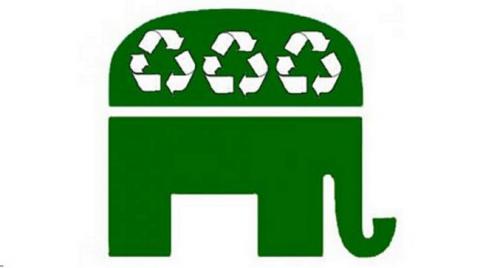The New Crop of Green Republicans

From our content partner, New America Media:
A new environmental scorecard of California legislators reveals an emerging trend – an uptick in the scores for Republicans, bolstered by a new crop of moderates.
The 2013 scorecard by the California League of Conservation Voters (CLCV) ranks state lawmakers on a scale of zero to 100 percent based on their voting record on key environmental bills in the last session.
The scorecard, released last Wednesday, shows that average scores for Republicans have steadily grown in the last few years. The average score for GOP Assembly members nearly doubled to 15 percent, while that of Senate Republicans more than tripled to 10 percent, compared to the previous year. Still, average scores for GOP legislators were far below that of their Democratic counterparts, which ranged from 87 to 90 percent.
The State Senate average was 66 percent, and the State Assembly average was 64 percent. Gov. Jerry Brown scored 89 percent, according to this year’s scorecard.
David Allgood, CLCV political director, said the top-two primary system, approved by California voters in 2010, has allowed more moderate Republicans to be viable in state politics.
Allgood, who has been an environmental lobbyist with the nonpartisan organization for more than 20 years, says that going forward, he expects to “see better scores from Republicans, because there is a much greater opportunity for Republicans to be less ‘ideologically rigid.’”
Under the system being used today, candidates of all political leanings appear on the same primary ballot. The two candidates who receive the most votes face off in November, regardless of their political party affiliation. Under this system, voters in some districts could find themselves choosing between two Democrats or two Republicans, which could spur candidates to move to the center to attract more votes.
In addition, Allgood said, decline-to-state voters can select candidates in any party in the primary -- and they tend to bolster the environmental voting bloc, similar to Democrats.
Bill Allayaud, director of government affairs in California for the Environmental Working Group, agrees that the top-two primary system introduces a new dynamic into state politics, but he says it’s too early to tell if there’s a trend.
Allayaud said he’s cautious, pointing out that the political shift could also result in more moderate Democrats.

The scorecard released this week does show a slight drop in the environmental scores of freshman Democrats this year compared to non-freshman lawmakers, from 87 to 83. Although it is a small change, the scores for Assembly Democrats has declined seven percentage points since 2010.
A group of “business Democrats,” who are more moderate is growing, and now calling themselves the “new Democrats,” Allayaud said, and they support a less progressive agenda.
Allayaud says he’s optimistic that another key change – a longer lifetime maximum of 12 years in the State Legislature – will also boost pro-environmental votes. Assembly members are up for re-election every two years, and Senators every four years.
“We hope to see legislators feel safe about re-election and less beholden to campaign contributors,” he said, adding that lawmakers can vote for measures that benefit their constituents, such as greater protections for clean air and water.
With a record number of freshmen Assembly members this year – half of the Assembly are new – CLCV’s Allgood says, the longer legislative terms gives them more time to learn about environmental issues.
There’s always a steep learning curve for new lawmakers, says Allgood, and by the time they are acclimated, they have to leave office. He says the longer terms should give them more time to understand the importance of the environment to their constituents.
With nearly a dozen bills related to fracking introduced at the beginning of the session, the scorecard identified fracking as one of the biggest environmental issues in California last year. Gov. Brown signed SB 4, a bill that contains some of the strongest fracking regulations in the nation. The governor also signed into law several other priority bills, including a ban on lead ammunition, bills expanding consumer access to renewable energy programs, and a bill that curbs flame retardants in building insulation.
But the scorecard also noted a record amount of money spent by an oil industry group -- $2.3 million in the first six months of the year was spent by Western States Petroleum Association (WSPA) – to lobby lawmakers and defeat legislation that would have called for more regulations on the industry. Their investment seems to have paid off. Of the 11 bills proposing regulations on fracking, only one passed – and although it is stronger than regulations in other parts of the country, some environmental groups say it is a very diluted bill compared to other legislation that was proposed.
Meanwhile, Allgood notes that the scorecard “raises more questions than answers.” We know how lawmakers are voting, but we don’t know their reasons -- or whether the uptick in the scores among freshmen GOP signals a change in the way they view environmental issues.
Photos: New America Media; Pavel Ahmed (Flickr).






























































































































































































































































































































